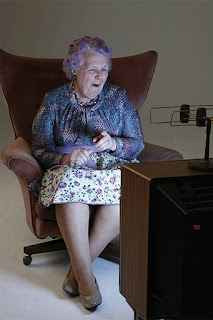The shadow education secretary, Michael Gove, is trying to suggest two things in
a speech today. The first is that Labour has done nothing to narrow educational inequalities, and has lowered standards. The second is that the intervention of the state is bad for the poor when it comes to education. But he has been misreading the statistics. And in his misreading, he is in danger of failing to see how the state can enhance parental choice and diversity.
Gove's main target is the educational maintenance allowance. And in his critique of the EMA he exposes the flaws at the heart of the wider argument. Gove complains that a relatively small proportion of EMAs go to those in receipt of free school meals (FSM). But only 14% of students receive free meals. And inequality in educational opportunity has extended far beyond that sixth of the population. I am not a great fan of EMAs, and believe some better targeting of young people in their early years of secondary school might be as valuable, but their success with those just above the FSM line reflects where Labour's wider education policies have had most effect.
The government is its own worst enemy when it comes to statistics. Or rather its statisticians are, because of their constant desire to change definitions, not least when it comes to social class. But the Youth Cohort Study has shown that where standards have risen - and apart from on Mr Gove's rather broad definition that includes GCSE modern languages, which have suffered from too much choice for students and too little state diktat, they undoubtedly have risen at all ages - those rises have been strongest among children from non-professional families. Have a look at Table 4.1.1
here and among ethnic minorities. The gap between those in 'unskilled manual' and 'managerial/professional' background youngsters at GCSE was 45 points in 1997; it was 39 points in 2006; more significantly, perhaps, the biggest improvements have occurred among those from intermediate or lower supervisory skilled families, those who might have been skilled manual or semi-skilled manual labour in the past.
All of which suggests that the problem is not as straightforward as Mr Gove would have us believe. For there has been a big narrowing of the gap between those who might have been the skilled working class in the past and the professional classes, and it is an achievement that the government should be shouting from the rooftops. Most of them are not entitled to free school meals and they have aspirational families who want them to get on. They are the groups supposedly benefited by grammar schools, though they are being helped far more by academies and good specialist comprehensives that stretch them, a process with which targets assist. Indeed, the differential improvements in particular social and ethnic groups also counter the notion that standards are uniformly falling - were this so, change would be equal across the board. Government policies, which include highly successful floor targets for schools, something Mr Gove ignores at his peril, have played a big part here.
But government has been less successful with the poorest sections of society. However, there is no evidence that they are most likely to succeed if the state stands aside. Indeed, it is often because their parents lack an aspirational interest in education that they are less likely to push their children to achieve. Strong schools, particularly academies, are starting to make a difference. But that has meant a degree of planned targeting - by the state - and tough floor targets to ensure that schools in the poorest communities are improving. These are the pupils for whom compulsory phonics and strong early years education, followed by personalised targets, are vital. And even if the schools delivering them are increasingly diverse, there must still be a minimum education entitlement if they are not to be further failed.
Michael Gove is a politician, so he exaggerates for effect. He has shown a refreshing lack of dogma in his embrace of academies and his abandonment of further selection. So one can only hope that his understanding of what has really happened as a result of successive Conservative and Labour reforms is less superficial than his contribution today.






